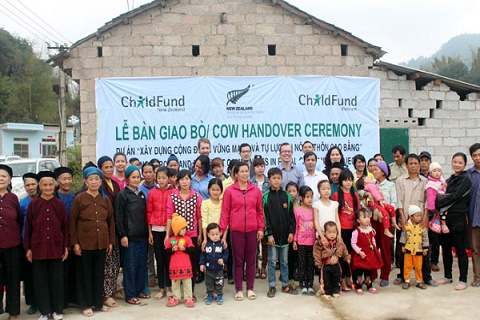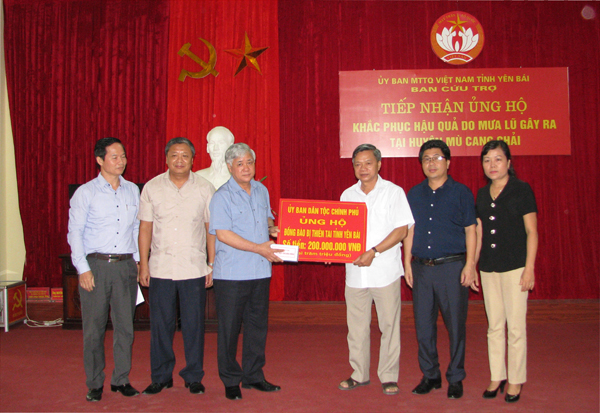Commenced in 2014, the five-year initiative is jointly funded by the New Zealand Aid Program and ChildFund New Zealand. It involves 1,700 local families, most of them are ethnic minorities in Tra Linh district to boost agricultural production and incomes, improve access to vocational training and credit, and better plan for natural disasters.
Tra Linh district is characterized by high poverty rates, geographic isolation, lack of access to economic opportunities, and limited arable land. It is also susceptible to natural disasters. Situated in the far north of Vietnam, Tra Linh is home to many ethnic minorities, in which 40% of households are classified as poor.
Accordingly, irrigation canals have been built and people have access to new livestock through the cow bank scheme. People have been trained to improve their skills to farm rice and raise livestock. Households will get access to credit and vocational training for the first time. And the six communes will each gain practical disaster preparedness plans. Besides, the project holistic approach aims at supporting in three areas of agriculture, diversified livelihoods, and disaster risk reduction.
The investment in Cao Bang is an example of New Zealand’s commitment to supporting vulnerable communities across Vietnam to strengthen their ability to decide their own future, and to live to their full potential.
“We would like to continue supporting Cao Bang, especially women and youth; and we commit to fund a total of NZD1.7million until 2019 focusing on education development and build strong local communities,” Ambassador Manning said.
As part of his visit, the Ambassador handed over four cows to families in Cao Chuong as part of the cow bank scheme. The scheme helps poor families by covering the upfront cost of livestock, allowing the families to start a small herd for meat or milk production, with the families eventually repaying the investment with later cattle offspring. As well as improving household income, the cow bank scheme and irrigation of rice crops improve food security for the people of Tra Linh.
Non-farm livelihoods are also supported to protect against economic shocks and the impact of natural disasters. A micro-credit and savings system is targeted at women and youth to access small loans to diversify their incomes. Out-of-school youth are further supported through improved access to vocational training./.
(en.dangcongsan.vn)
54 ETHNIC GROUPS
THỐNG KÊ TRUY CẬP
Số lượt truy cập hiện tại: 5
Tổng số truy cập:




